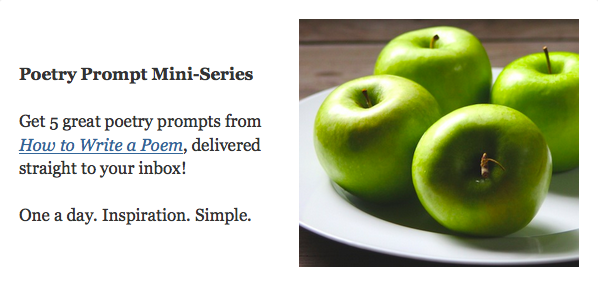
To understand its original meaning, you must know the story. The parable begins with King Dionysius, the tyrant of Syracuse (now Sicily). He liked to surround himself with courtiers who continually flattered him. One of the professionals who lounged around during feasts and told the king everything he wanted to hear was Damocles.
During an opulent feast, Damocles mentioned how blissful life would be if he were king. Dionysius told Damocles if he wanted to see what it was like to be king, then he was welcome to come sit at his throne. Naturally Damocles accepted and the king ensured Damocles was lavished with the best food, drink, and finery during the feast. The servant reveled in the moment, thinking how a king’s life was nothing short of wonderful when he noticed that Dionysius had hung a sword pointing directly above Damocles head, suspended in the air by a single strand of horse hair.
In a great fright, Damocles begged the king to allow him to leave the throne and return to his subservient place as a courtier. The point the king made was clearly understood. What appears to be an enviable life of luxury, wealth, and power is, in fact, fraught with fear; dangerously teetering on the edge of death.
The ancient moral often lost to common usage is simple: A life of extravagance and power is not all it’s cracked up to be.
An unrelated, yet amusing tale of King Dionysius has to do with the poetry he wrote. From the collection, Bibliotheca Historica a story is told of how, during court, Dionysius would read his poems aloud to the rapturous applause and praise of his courtiers.
Unable to satisfy his need for praise, he also wanted to receive accolades from the arts community. Dionysius sent for the well-known poet and philosopher Philoxenus to listen to some of the king’s poems in court and give his opinion. After dinner, Philoxenus shared his thoughts and they were anything but flattering. Infuriated by the insults, Dionysius sent Philoxenus to a prison cut from rock, known as The Quarries.
Because of the tireless pleas by the literary circle to free Philoxenus, the king eventually decided to release the poet. But first, he had to dine with the king. After an elegant feast, King Dionysius read a few verses of poetry he had recently composed. While the courtiers lavished the king with compliments on his unparalleled talent, Philoxenus sat quiet. Certain the prison experience had broken the poet’s spirit, the king knew Philoxenus would be grateful for the mercy shown him, enough to give a proper response with a few words of praise.
Once the crowd settled down, the king asked how he liked the poem. The moment hanging by a thread, Philoxenus stood, turned to the guards and said, “Take me back to The Quarries.”
Try It: Sword of Damocles Poetry
Consider a story, a movie, a song, or poem when an era, or any representation of opulence and power, upon closer examination, proved itself more trouble than it was worth. Was there a wistful admiration of the luxury and power? What lesson was learned? Write a poem about it.
Click to get FREE 5-Prompt Mini-Series
Featured Poem
Thanks to everyone who participated in last week’s poetry prompt. We enjoyed this heartfelt poem from Yvonne:
Tangle
For Mark
It’s a knotty problem,
this tangle we’ve made
of our lives.
Now you’re gone, I can’t grasp
the other end of the thread.
You have become
the puzzle of the labyrinth,
the lost string,
Icarus falling.
If I close my eyes, reach in
and pull you out,
will you look back?
I believed you were
indestructible.
I lied. Those sisters
poised over their embroidery
severed the links
all at once.
I am left holding
the Gordian knot:
your life and mine
inextricably tangled,
a macramé of twisted
fears and loves.
You are there in the darkness
with your sword,
waiting to cut me loose.
I won’t let you.
Not yet.
—by Yvonne Marjot
Photo by Flair Candy, Creative Commons via Flickr.
Browse more writing prompts
Browse poetry teaching resources

“How to Write a Poem is a classroom must-have.”
—Callie Feyen, English Teacher, Maryland
- Poetry Prompt: Misunderstood Lion - March 19, 2018
- Animate: Lions & Lambs Poetry Prompt - March 12, 2018
- Poetry Prompt: Behind the Velvet Rope - February 26, 2018

Rick Maxson says
Heather, what a timely tale you associate with this week’s poetry prompt.
Heather Eure says
You are perceptive as always, Rick. 🙂
Rick Maxson says
Yvonne, I hope you continue to grace us with your poetry.
Maureen says
I agree with Rick, Yvonne. Yours is a lovely poem.
Sandra Heska King says
I third that, Yvonne.
Heather Eure says
Hear! Hear!
Rick Maxson says
A Second Opinion
Some scars are not closures,
they want something
to be made of them, a door,
or a vine, like this scar
on my ankle, climbing
the remainder of my life, giving
direction to desire.
We all want this,
a beanstalk to the clouds,
the skin as a map—constant,
easy to fold—
the bend in the road
obscuring the glare
of what we were.
Today the locusts started
their saws singing
and this evening
one left its mask clinging
to the furrows of a cottonwood.
As children we wore their forsaken shells—
hideous face, fishhook legs—
a brittle pouch for hopelessness
and misunderstood longings.
For years my body has been the husk
of something moving inside,
balanced on a thread
high above my life,
while I strained to see
of what the thread was made.
I am the dancer’s motion,
not the step-by-step:
I am the sound of air
in an ear turning;
the press of space
against my skin, torments me;
I am the dream
without a dreamer—
an echo waiting.
Heather Eure says
This is wonderful, Rick. The comparison of a cicada… striking. This verse is sticking with me:
“For years my body has been the husk
of something moving inside,
balanced on a thread
high above my life,
while I strained to see
of what the thread was made.”
Katie says
These lines stopped me in my tracks:
“- the bend in the road
obscuring the glare
of what we were.”
Donna Falcone says
Yyvonne. I love your poem… so glad to see it featured here. 🙂